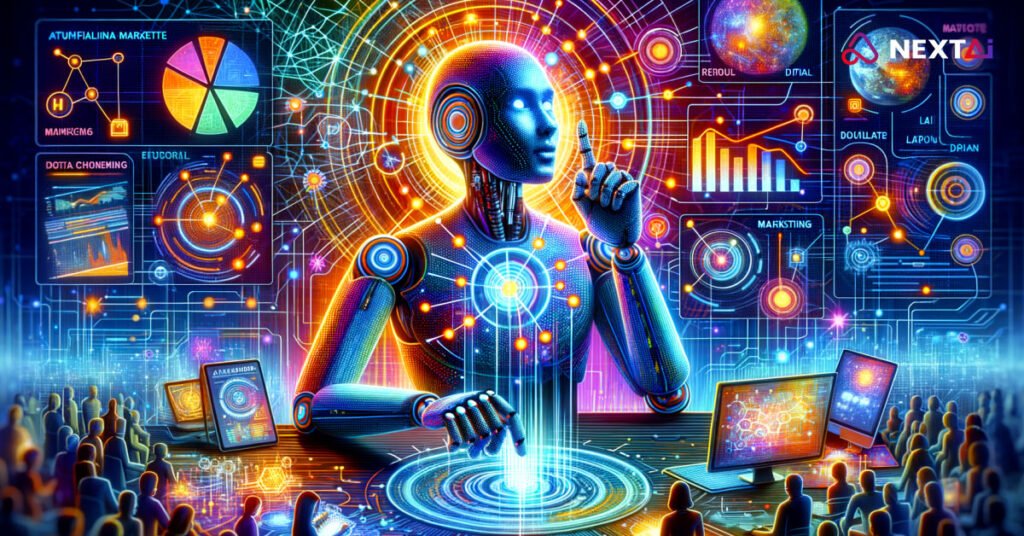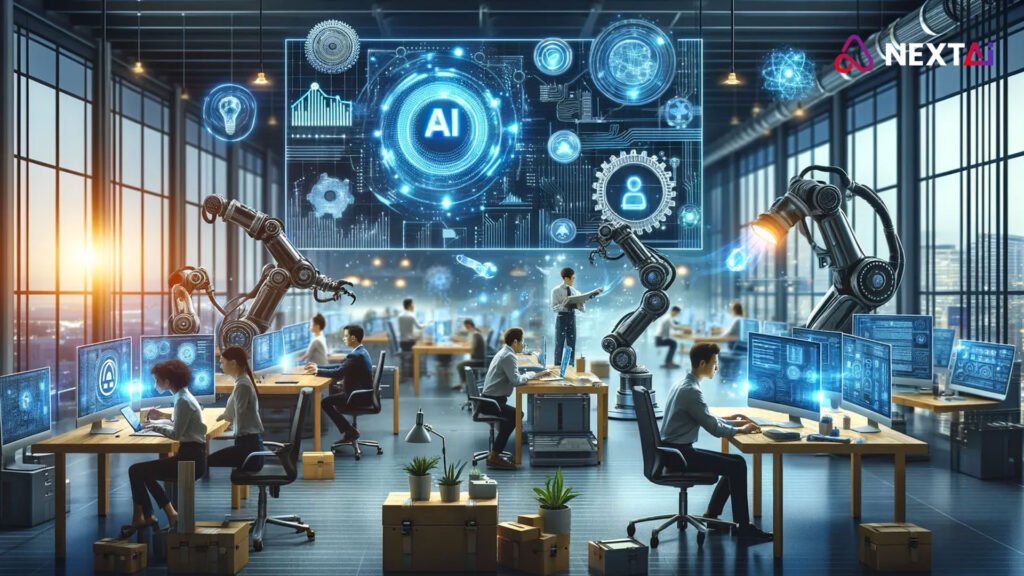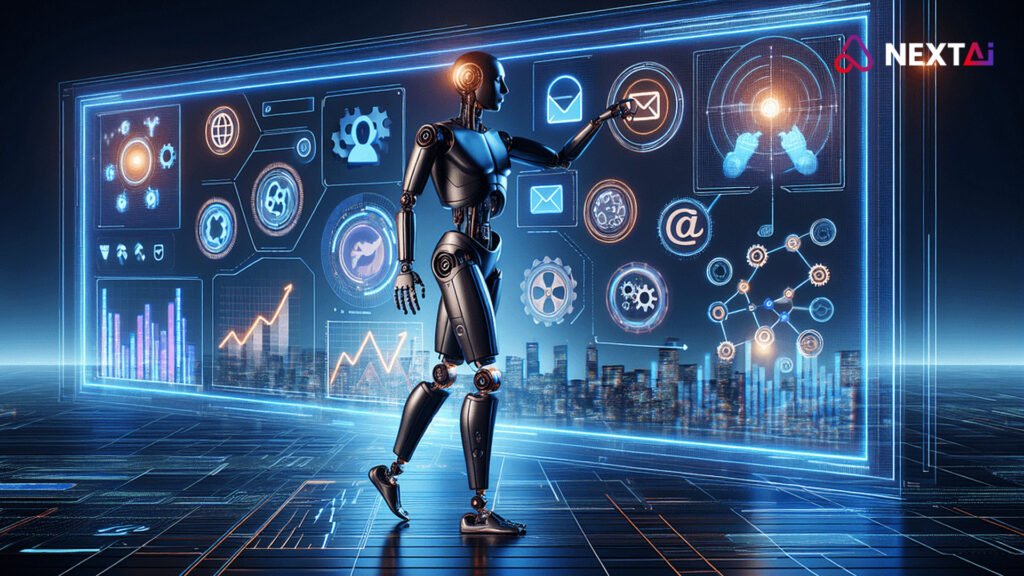
How Generative AI is Transforming Workflows in Automation and DevOps
By Mark Robinson | Generative AI in Automation and DevOps
Generative AI is rapidly transforming how teams work, especially in fields like automation and DevOps. With the ability to learn from large datasets, generate code snippets, optimize processes, and even anticipate system needs, Generative AI is becoming an essential tool for modern teams. In this blog, we’ll dive into how Generative AI can help teams take their automation and DevOps workflows to new heights, supporting everything from task automation to predictive maintenance.

1. Streamlining Code Generation and Deployment
Generative AI can assist in generating code, reducing development time, and minimizing human error. For DevOps teams, this means writing code for infrastructure as code (IaC) templates, configuration files, and even small scripts in seconds rather than hours. By automating routine coding tasks, AI frees developers and engineers to focus on more complex aspects of the project.
Moreover, AI-powered tools can automatically verify, test, and debug code before deployment, ensuring that only high-quality code is pushed to production. This reduces deployment errors and minimizes the risk of downtime, creating a faster and more reliable deployment pipeline.
2. Enhancing CI/CD Pipelines with Intelligent Automation
Continuous Integration and Continuous Deployment (CI/CD) pipelines are the backbone of modern DevOps, enabling teams to deliver updates and features rapidly. Generative AI can enhance these pipelines by automating build processes, testing sequences, and deployment workflows. For instance, AI can automatically trigger tests based on code changes, dynamically allocate resources, and optimize the sequence of tasks to minimize bottlenecks.
By incorporating Generative AI, teams can set up intelligent CI/CD pipelines that adapt to changes, improve efficiency, and reduce manual intervention. This approach not only saves time but also increases the consistency and reliability of deployments.
3. Predictive Maintenance and Issue Resolution
One of the most powerful uses of Generative AI in DevOps is its ability to predict and prevent issues before they impact performance. By analyzing historical data and real-time system metrics, AI algorithms can identify patterns and anomalies that indicate potential problems. For instance, AI can predict server failures, identify resource shortages, or detect unusual behavior in network traffic.
When potential issues are detected, AI can automatically trigger preventive actions, such as scaling resources, alerting team members, or initiating troubleshooting scripts. This proactive approach allows DevOps teams to maintain optimal system performance, reduce downtime, and provide a seamless experience for users.
4. Automating Infrastructure Management
Managing infrastructure manually can be a resource-intensive process. Generative AI can help automate tasks such as provisioning, scaling, monitoring, and decommissioning resources, making infrastructure management more efficient and responsive. AI-driven tools can dynamically allocate resources based on current demands, reduce idle resources to cut costs, and optimize load balancing across servers.
For DevOps teams, this level of automation means that infrastructure management becomes more adaptive and scalable. Generative AI-powered infrastructure management allows teams to focus on strategic initiatives while maintaining cost efficiency and system stability.
5. Optimizing Workflows with Natural Language Processing
Natural Language Processing (NLP), a branch of Generative AI, has practical applications in automation and DevOps workflows. NLP-driven tools can analyze logs, error messages, and system notifications in real-time, categorizing and prioritizing issues based on severity. Additionally, NLP chatbots can assist DevOps teams by answering common questions, providing troubleshooting steps, and automating support ticketing.
NLP-powered assistants make it easier for teams to interpret complex logs, automate routine queries, and quickly identify root causes of issues. By streamlining communication and troubleshooting, NLP in Generative AI can help teams respond faster and maintain higher productivity.
6. Continuous Monitoring and Performance Optimization
Generative AI can play a central role in monitoring and optimizing performance by identifying trends in system behavior over time. AI-driven monitoring tools continuously analyze metrics like CPU usage, memory consumption, and network traffic, learning what “normal” system behavior looks like and flagging deviations.
AI can suggest optimization strategies, such as modifying configurations, redistributing workloads, or adjusting resource allocations. In a dynamic DevOps environment, AI-driven continuous monitoring provides insights that enable teams to maintain optimal performance without constant manual adjustments.
7. Improving Security Through Automated Threat Detection
Security is critical in any DevOps workflow, and Generative AI is proving to be a valuable asset for threat detection and prevention. AI algorithms can identify potential vulnerabilities, detect unusual patterns that might indicate an attack, and trigger preventive actions to protect the system.
For example, AI can detect anomalies in access patterns, flag unauthorized changes to configurations, or alert teams to suspicious behavior in real-time. By integrating Generative AI into security monitoring, DevOps teams can enhance their defense mechanisms, reducing the likelihood of breaches and ensuring that their environments remain secure.
8. Documentation and Knowledge Sharing with AI Assistance
One of the often-overlooked aspects of DevOps is documentation, which is essential for knowledge sharing and onboarding new team members. Generative AI can assist in creating and updating documentation automatically, capturing key information from workflows, and generating summaries of processes and best practices.
With AI-powered documentation tools, teams can maintain accurate and up-to-date records of their workflows, deployment processes, and troubleshooting steps. This simplifies knowledge sharing, reduces the burden of manual documentation, and makes it easier for new team members to get up to speed.

Final Thoughts: Embracing Generative AI for a Future-Ready DevOps Workflow
Generative AI is transforming how DevOps and automation teams operate, making processes faster, smarter, and more resilient. By incorporating AI into various stages of the DevOps lifecycle, teams can automate repetitive tasks, optimize performance, and improve security, all while reducing manual workloads. As the technology continues to evolve, Generative AI will undoubtedly become an indispensable asset in the workplace, empowering teams to reach new levels of efficiency and innovation.
If you’re interested in exploring how Generative AI can help transform your DevOps workflows, let’s connect and discuss how AI-driven solutions can enhance your team’s productivity and success.
#GenerativeAI #DevOpsAutomation #MarkRobinson #CI/CD #PredictiveMaintenance #InfrastructureAutomation #AITools #FutureOfWork
Author: Mark Robinson
